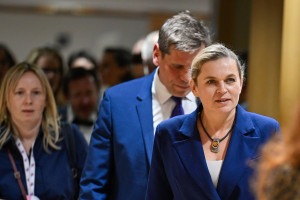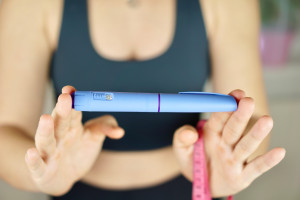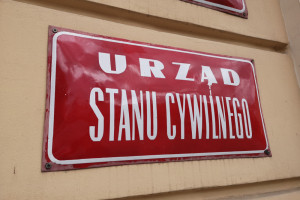"Demoralizing activities". Bishops: do not send children. There are reactions to the appeal of the hierarchs

- On September 1, a new, optional school subject will be introduced to schools - health education
- The Presidium of the Polish Episcopal Conference has published a letter appealing to parents not to consent to their children participating "in these demoralizing activities"
- In turn, Deputy Minister of Education Paulina Piechna-Więckiewicz emphasized that health education is not "a systemic action to support children"
- According to Father Paweł Gużyński - in an interview with Fakt - neither side of the dispute strives for the "common good" and pointed out that "one side does not trust the other"
As of September 1, 2025, schools will introduce a new, optional subject - health education, which will replace family life education. A parent who does not want their child to participate in health education classes will have to submit a written resignation by September 25.
On May 14, the Presidium of the Polish Episcopal Conference published a letter-appeal to parents not to consent to their children participating "in these demoralizing classes". The clergy wrote in it that the vision of sexuality and gender present in health education is inconsistent with the Polish legal system . According to them, "the conducted [...] propaganda emphasizes that health education is about the health of students, while in its significant part this subject contains content regarding so-called sexual health, the aim of which is a complete change in the perception of family and love".
- Remember that you are responsible in conscience before God for their proper upbringing. You cannot agree to the systemic depravation of your children, which is to be carried out under the pretext of so-called health education . In the interests of upbringing and salvation, we appeal to you not to consent to your children's participation in these demoralizing activities - Fakt quotes the bishops' appeal.
Deputy Minister of Education Paulina Piechna-Więckiewicz responded to the allegations made by the Presidium of the Polish Episcopal Conference.
Compromise is the only possible solution- Health education is not "systemic depravation of children", it is a systemic action to SUPPORT children . Children have rights, including the right to education, to acquire knowledge about themselves adapted to their emotional and intellectual development. Spreading content that is not true about health education, in my opinion, harms the interests of the child - she wrote on the X portal.
Fakt asked Fr. Paweł Gużyński about the aforementioned letter from the bishops. As he pointed out, given the dynamics of the state-Church relationship, he is not surprised by the Episcopate's reaction. - This does not mean that I would not engage in a discussion here on the content of the letter itself and health education itself . But the government side gave the church side reasons to react this way - the monk told Fakt.
According to Father Gużyński, "the Episcopate says in advance in this letter what it expects from the government side." At the same time, he emphasized that neither side of the dispute is striving for the "common good" and pointed out that "one side does not trust the other."
Core curriculum for health education- There is no doubt that in a moment we will have a debate on, for example, abortion. This must be discussed anew and a compromise must be built anew. […] A wise compromise is needed in this matter, because in the social space neither side should strive to achieve any kind of domination, because such domination will always cause a counter-reaction - summed up Father Gużyński in an interview with Fakt.
The core curriculum of the health education subject states that its main objective is to "develop students' advanced competences in the field of lifelong health care, taking into account independence in making informed health decisions and responsibility for one's own health and that of one's surroundings in accordance with the current epidemic challenges and the geopolitical situation."
It was emphasized that students learn how to shape their health potential and health culture and how to build health security, thanks to which they become active participants in health-promoting processes in society.
Detailed requirements regarding knowledge and skills are presented in 11 thematic sections:
- values and attitudes,
- physical health,
- physical activity,
- nutrition,
- sanity,
- social health,
- puberty (primary schools only),
- sexual health,
- environmental health,
- internet and addiction prevention,
- health care system (only in secondary schools).
The principles for organising health education classes are specified in the regulation on the method of school teaching and the scope of content concerning knowledge about human sexual life, the principles of conscious and responsible parenting, the value of the family, life in the prenatal phase and methods and means of conscious procreation included in the core curriculum of general education.
Classes in public primary schools will be conducted in grades IV-VIII for one hour a week in each of these grades, with classes in grade VIII to be conducted no longer than until the end of January of the given school year.
In general secondary schools, technical schools and vocational schools of the first degree, classes will be held for one hour per week in grades I and II or in grades II and III, or in grades I and III (a total of two hours during the teaching period). In non-public schools, the number of hours of health education classes cannot be less than the number of hours of health education classes in a public school.
Health education classes will not be assessed and will not affect a student’s promotion to a higher grade or their graduation.
Copyrighted material - reprint rules are specified in the regulations .
rynekzdrowia












